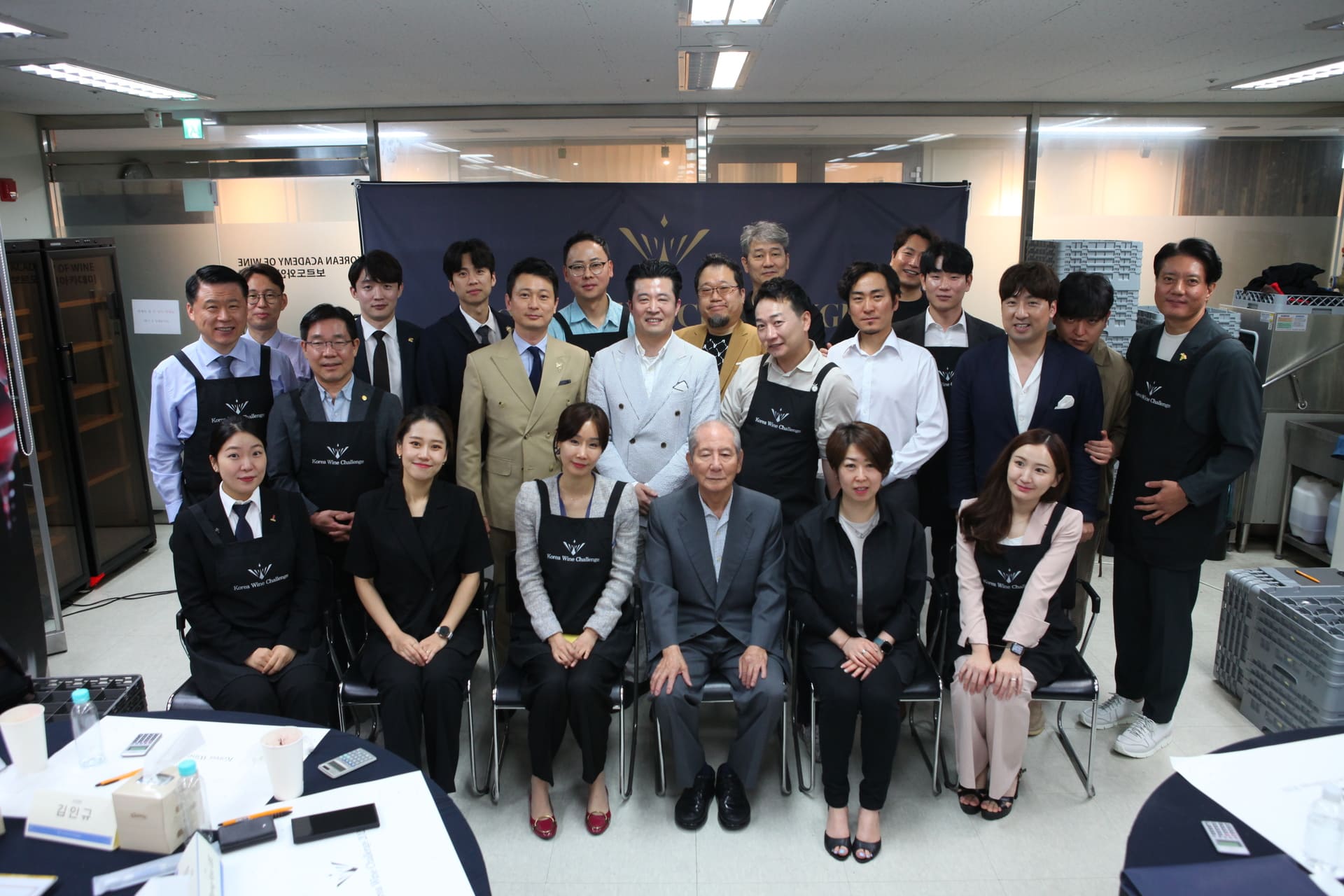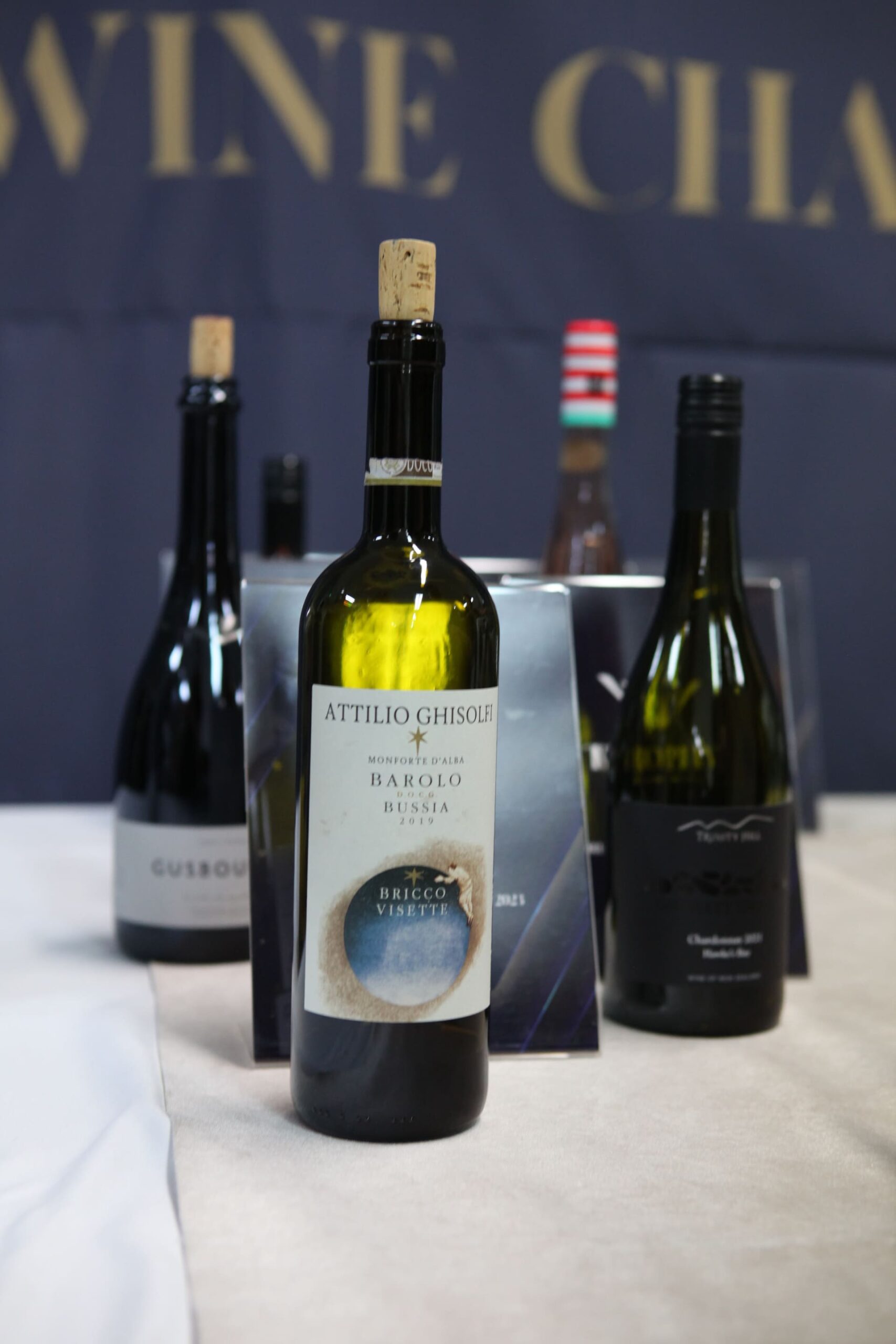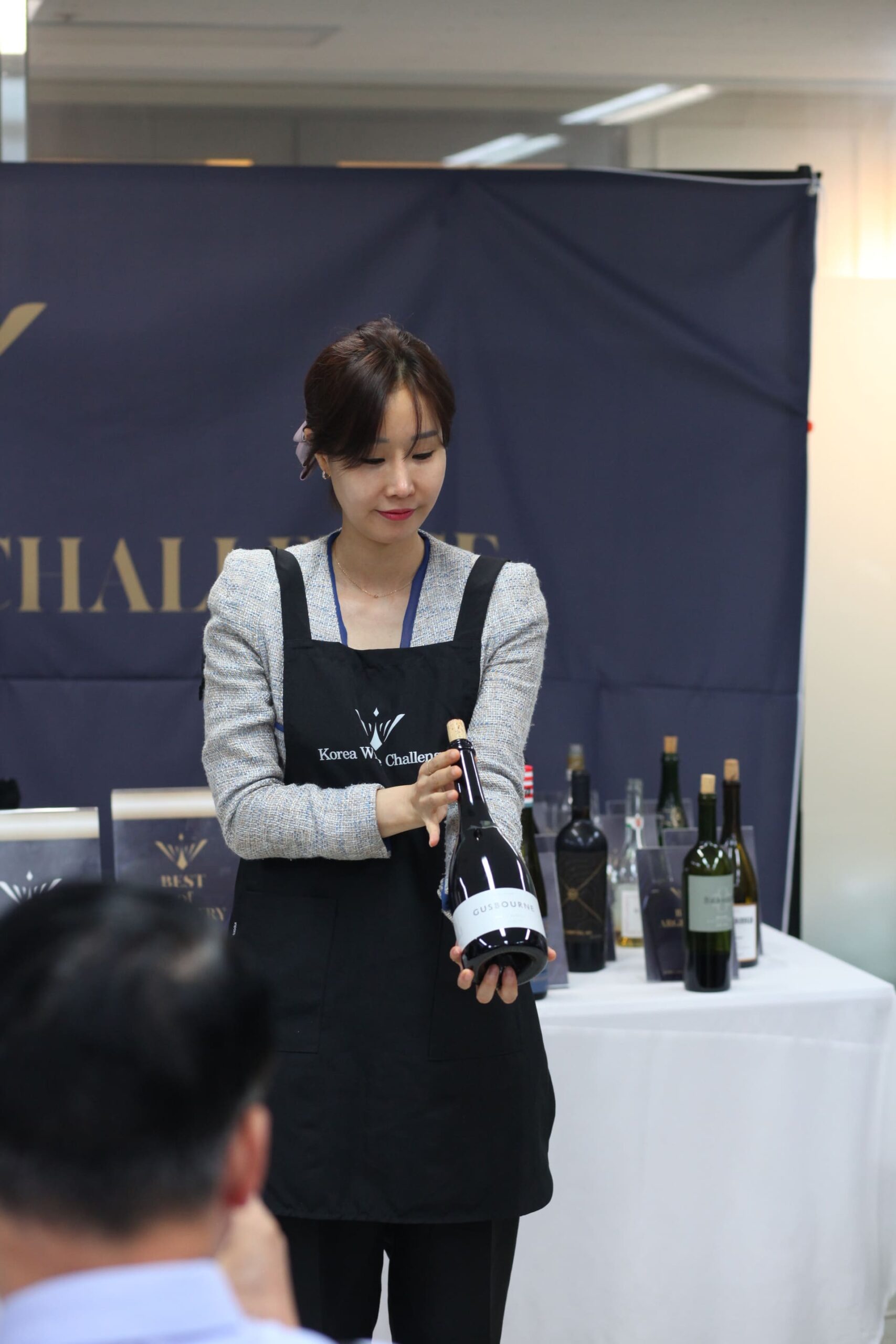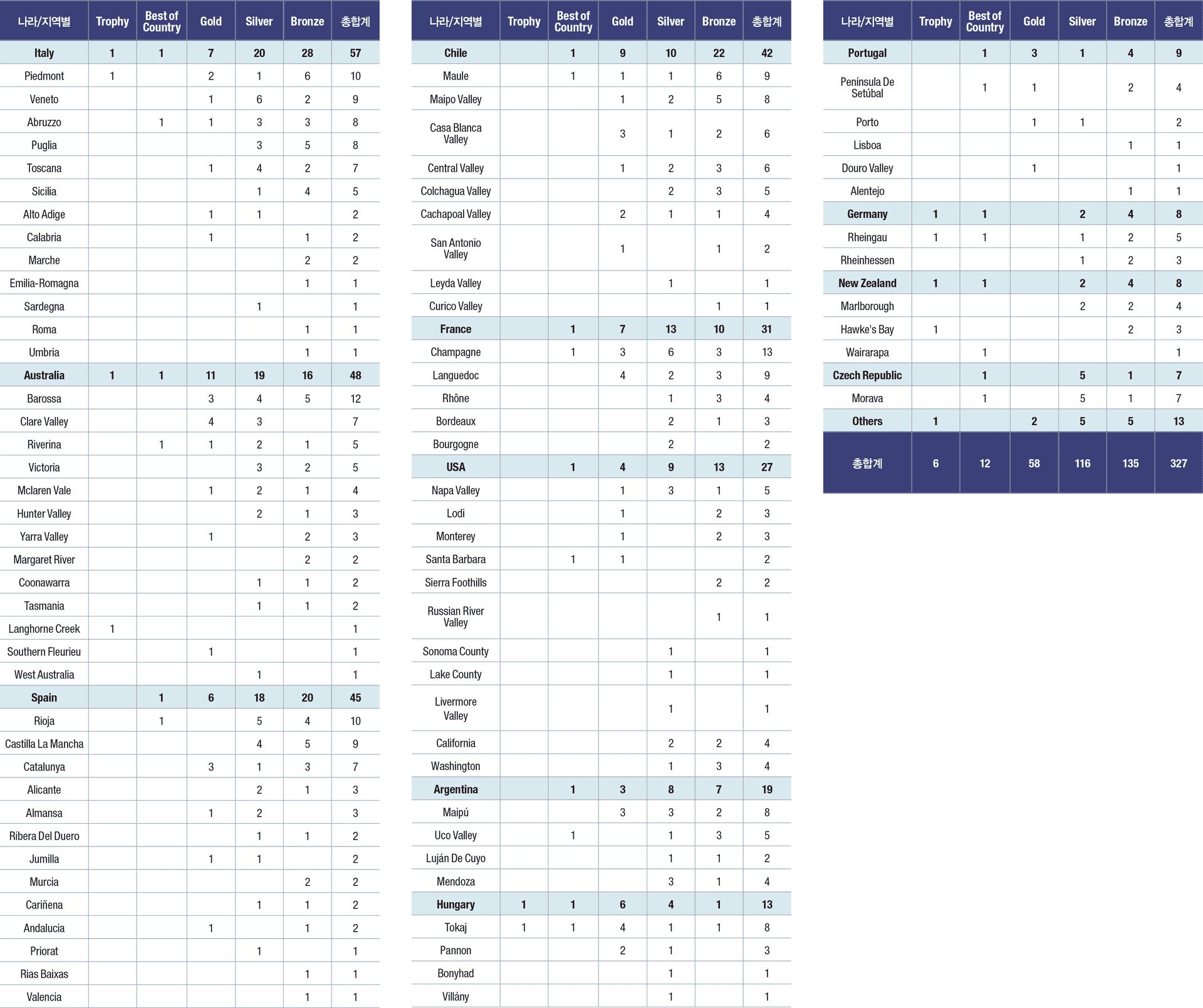KWC2023 Results Announcement:
The Richness of Korean Wine Culture

Sean Shin
1 August 2023

The highlight of this competition can be said to be the ‘diversity of wine’. The list of award-winning wines is like a painting showing the world's wine regions in a row. While facing the results of the competition, I also thought about what kind of wine consumption culture the Korean wine market, which has been continuously maturing, is creating.
Korea Wine Challenge 2023 Video
Embracing Diversity in Wine Culture
In experiencing a new foreign food culture, a globally recognized brand often leads the initial journey. The taste experience provided by a new food culture by these pioneering brands often serves as an initial gateway for consumers to open their minds. Later, as consumers' taste buds become more sophisticated and want more choices, the culture evolves into a thriving and diverse market. Over the past few decades, various food and beverage cultures have been introduced to Korea. Coffee and wine are good examples of rapid growth and evolution. Also, introducing and developing a coffee culture in Korea is similar to creating a wine consumption culture. The Korea Wine Challenge and Starbuck's journey in Korea seem apt to explain this evolution.
Starbucks, which debuted in Korea in 1999, heralded the advent of a new coffee culture. By introducing the lifestyle concept, the brand changed Koreans' perception of coffee and their consumption habits. Beyond the meaning of consuming a simple beverage, we created the idea of a ‘cup of coffee’ that contains the role of a community hub. These changes have triggered the explosive growth of Korean coffee culture over the past 23 years. Korean consumers have refined their taste for coffee, and their perception of variety and quality has become more pronounced. Consumers began to talk about the difference in coffee taste and individuality depending on the place of production, type of beans, and degree of roasting. When shop assistants received orders at cafes, they began to ask whether consumers sought acidity in coffee. It's a lot like a sommelier pre-commenting on acidity when recommending a wine to a customer.
The Korea Wine Challenge, celebrating its 19th this year, is proud to have played an essential role in shaping the current Korean wine landscape. Looking back at the wine competition, which has been on a journey of nearly 20 years, from the past, what became a hot topic every year at the competition was when a wine from a new producer that had yet to be tasted won the top prize. The judges were composed of the so-called experts who knew the best wine in Korea at the time, and the wines they selected were often wines that had yet to be introduced to the Korean market. Another notable highlight of the year was UK's winning the trophy for sparkling wine. I read an article in an overseas magazine about British sparkling wine being compared to French Champagne due to similar climate and soil conditions. As British sparkling wine stood out at KWC2023, the competition confirmed to Korean consumers that the UK's reputation as a producer of high-quality sparkling wine is growing.


We are long past when knowing the names of iconic brands like Bordeaux's Château Mouton Rothschild or Château Haut-Brion was considered proof of wine experience. In the meantime, wine education has also increased, and wine has already permeated into Korean food culture as various Korean dishes and pairings have been tried. Now in Korea, many consumers have high experience in wine taste. Consumers who have tasted different types of wines at various price points in other wine-producing countries have a relatively accurate understanding of their preferences. As such, KWC2023 was held when ordinary consumers accepted the diversity of wine and evaluated the quality from various angles.
Notable results
808 wines from 25 countries
Top 4 countries with medals in 2023
Italy (57wines), Australia (48wines), Spain (45wines), Chile (42wines)
The total number of medals awarded with a Bronze or higher is 327,
accounting for less than 40% of all wines exhibited.
Analysis of KWC2023 results
This year, an unprecedented level of participation stands out first. Entries were received from 25 countries, up from 20 countries the previous year. This increase indicates that Korean wine culture is growing internationally, and the Korean wine market is receiving much attention from overseas. Europe, the Old World of wine, significantly contributed to this growth. 15 wines from Russia and Azerbaijan, which may be unfamiliar to Korea, participated, 15 from Hungary, and 25 from the Czech Republic. Moldova and Lebanon also participated in the competition. Although geographically located in Asia, Lebanon is more in line with the Mediterranean and Western world regarding its wine production traditions and resulting wine styles.
Many of the KWC2023 medals went back to Old World wines. The number of wines submitted was also higher in the Old World, and the number of award-winning wines accounted for 56% of the 15 award-winning countries in the Old World, far exceeding last year's 45%. The award-winning wines of the New World consisted of five countries: Australia, Chile, the United States, Argentina, and New Zealand. Australia stood out with 48 medals this year. Chile, the largest medal winner last year with 66 medals, showed a downward trend with 42 medals. The United States and Argentina also saw a slight decline in award results.
Hungarian wines stood out in the sweet category, receiving good reviews in the preliminary and final rounds. In particular, Hungarian wines are considered to have revealed their diversity because they won awards evenly in Pannonhalma in the northwest and Villány in the south, as well as Tokaj, which has a traditional reputation. The performance of the Czech Republic was also impressive. With 7 medals, it can be said that it is an achievement that can stimulate awareness of Czech wine in Korea. Czech wines are traditionally famous for their aromatic white wines. White wines from Pálava and Sauvignon Blanc were also on the award list, but two Pinot Noirs that scored higher than Silver were also on the award list. In the case of Czech wine, a tasting event is being prepared by the Czech Embassy in Korea around the end of this year.

KWC2023 Top Countries
By winning 57 medals at KWC2023, Italy can be seen as proving the strength and diversity of Italian wines. Looking at the award-winning wines, Piedmont, with 10 awards for Barolo, and Veneto, with 9 medals for Amarone and Prosecco, topped the list. Surprisingly, strong contenders for these traditional powerhouses were Abruzzo and Puglia. It has successfully brought out the region's potential of indigenous varieties such as Montepulciano, Primitivo, and Negroamaro. Although it is a relatively less recognized region than Barolo or Amarone, the number of medals is only one or two different. This fact conveys one clear message to us. In this stage of the wine industry, wine producers can take on challenges anywhere and often produce excellent wines in unexpected places.
“In this stage of the wine industry, wine producers can take on challenges anywhere and often produce excellent wines in unexpected places.”
After Italy, Spain came second in Europe with 45 medals. Spain's case was a well-balanced result that shows regional expression. From the Red wines of Tempranillo-dominated Rioja to the various varieties of La Mancha and the Mediterranean-influenced regions of Catalunya and Valencia, it has demonstrated its reputation as a traditional wine powerhouse. Australia, the leader in the New World, showed off its remarkable wine quality by winning 48 medals. Australia took 11 gold, more than Italy. This suggests that Australian wines were rated highly on average at this year's competition. The Barossa Valley, famous for its full-bodied, robust Shiraz, has won 12 medals. Even if this year's award results are expanded to all countries and all regions, only France's Champagne, which won 13 medals, has won over 12 medals in one wine-growing region. Various white varieties were awarded in Riverina, and in Victoria and McLaren Vale, Shiraz and Cabernet Sauvignon-based wines won awards. In short, Australia's strengths are confirmed by its rich wine styles and its terroir.

Changes and Challenges of KWC
The Korea Wine Challenge has now become a platform that symbolizes the changes in Korean wine culture. In particular, the variety of wines exhibited at this year's competition tells us that wine producers worldwide are paying more attention to Korea's rapidly growing wine market than in the past. Winning wines that have achieved good results will be the key to enabling Korean wine consumers to make more diverse choices and judgments. Suppose consumers in the past used to associate wine with rituals, iconic brands, or famous production areas. In that case, the current consumers enjoy wine for its taste and quality.
As much as they are interested in the diversity of wine, Korean consumers are now enjoying wine more profoundly and abundantly. As such, KWC continues to take on significant challenges to lead Korea's wine culture in the future based on its growth. KWC is a wine evaluation competition by expert judges, but it is always a tough challenge to objectively evaluate the quality of wine. This is because the evaluation of wine is easily influenced by individual subjective preferences, and to maintain objectivity in evaluation, it is necessary to clearly know which factors are essential in the evaluation. Moreover, KWC focuses not only on the quality of its wines but also on identifying its potential to succeed in the Korean market. The characteristics of the wine preferred by the jury consisting of only Koreans are inevitably reflected, and foreigners may not sympathize with the same feeling. So, whenever I analyze the results annually, I consider the aspect of the judges' preference for taste according to Korean food culture as necessary. This is why, near the end of each competition, we are determined to set more precise criteria for quality evaluation in the next event.
KWC's challenge will make the Korean wine market more globally recognized and allow Korean consumers to create their own wine stories through more diverse and rich wine experiences. This is the value that KWC is aiming for, and I hope that Korean wine culture will grow and blossom through this value.

Wine
For award information from 2005 to 2019, please refer to The medal results 2005-2019 in the menu bar above.